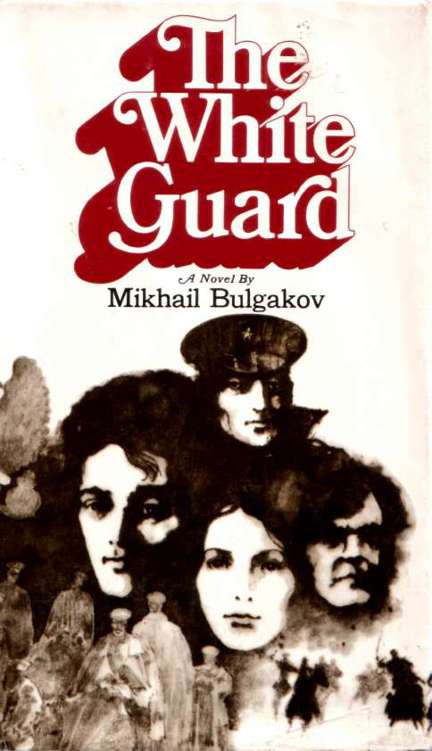Newly released
This book is new and will be uploaded as soon as it becomes available to us and if we secure the necessary publishing rights.

The White Guard Book PDF
(0)
Author:
Mikhail BulgakovNumber Of Reads:
69
Language:
English
Category:
literatureSection:
Pages:
284
Quality:
excellent
Views:
589
Quate
Review
Save
Share
Book Description
In Mikhail Bulgakov's debut novel, The White Guard, a Kyiv family finds themselves entangled in the tumultuous Ukrainian War of Independence, a period drawn from the author's own life experiences.
As Reds, Whites, German troops, and Ukrainian nationalists clash for control of Kyiv, the war escalates in intensity. Bulgakov, who personally witnessed ten changes of government during the Russian Civil War in Ukraine, draws heavily from his own encounters to craft the narrative. The novel adopts alternating points of view, presenting an unusual angle on the conflict between the Russian Whites (with whom the Turbin family align) and Ukrainian nationalists.
Through this captivating tale, The White Guard elegantly captures the chaos and complexities of civil war, where notions of good and evil become blurred, and loyalty to friends, family, and convictions becomes paramount. The story reveals that in such a turbulent time, individuals must rely on their allegiances and beliefs to navigate the shifting landscape.
Initially, The White Guard appeared in partial form in a Soviet-era literary journal before being adapted into a successful play titled "The Days of the Turbins." The play's popularity was such that even Stalin attended it twenty times. However, the novel itself did not receive widespread publication until many years after Bulgakov's death.
This absorbing work showcases Bulgakov's mastery in storytelling and provides readers with a deeply immersive journey through the trials and tribulations of war. The White Guard remains a powerful and enduring piece of literature, offering unique insights into the complex historical backdrop of the Ukrainian War of Independence.
Mikhail Bulgakov
Mikhail Avanisevts Bulgakov, a Russian novelist and playwright, was born on May 15, 1891, in Kyiv, and he passed away on March 10, 1940, in Moscow. Initially, Bulgakov worked as a doctor, but he is best known for his novel "The Master and Margarita," which was published posthumously, three decades after his death. He was born into the family of a professor at the Kyiv Religious Academy, and he spent his childhood and youth in Kyiv. This city would later serve as a significant setting in his novel "The White Guard," becoming an expression of his deep connection to family and homeland, as evident in his article "Kyiv-City" from 1923.
Bulgakov attended the medical faculty of Kyiv University in 1909 and graduated with distinction in 1916, earning a degree as a medical doctor. During the 1920s, he explored the theme of social upheaval and its impact on human nature through satirical essays, stories, and anecdotes. Works like "Satanic Show" (1924) and "Deadly Eggs" (1925) exemplify his unique satirical literary style, which both fascinated and alarmed his contemporaries.
"The Heart of a Dog" (1925) was another satirical novel by Bulgakov that reflected the same direction of his sharp wit. Despite admiration from some, others refused to publish these works due to their scathing critique of the era.
The turning point in Bulgakov's career came with the publication of his novel "The White Guard." In 1925, the novel's two parts were published in the magazine "Russia," and it later gained further acclaim when adapted into the play "Days of the Turbins" at the Moscow Art Theater MKHAT in 1926. The play's success with audiences, including the attention of Stalin himself, was met with harsh criticism from the authorities, who accused Bulgakov of anti-Soviet sentiments. This led to the play's temporary withdrawal from the theater program in 1929, though it was shown again in 1932.
Bulgakov's international fame, however, came with his novel "The Master and Margarita," an extraordinary work that encompassed the themes from his previous creations and the essence of Russian and world classical literature. While the novel gained immense recognition globally, it faced censorship in the Soviet Union and was only published there in an abridged edition in 1966, long after the author's passing. Bulgakov consciously crafted this novel as a culminating masterpiece, blending various motifs and literary influences, solidifying his status as a prominent figure in Russian literature.
Book Currently Unavailable
This book is currently unavailable for publication. We obtained it under a Creative Commons license, but the author or publisher has not granted permission to publish it.
Rate Now
5 Stars
4 Stars
3 Stars
2 Stars
1 Stars
The White Guard Quotes
Top Rated
Latest
Quate
Be the first to leave a quote and earn 10 points
instead of 3
Comments
Be the first to leave a comment and earn 5 points
instead of 3